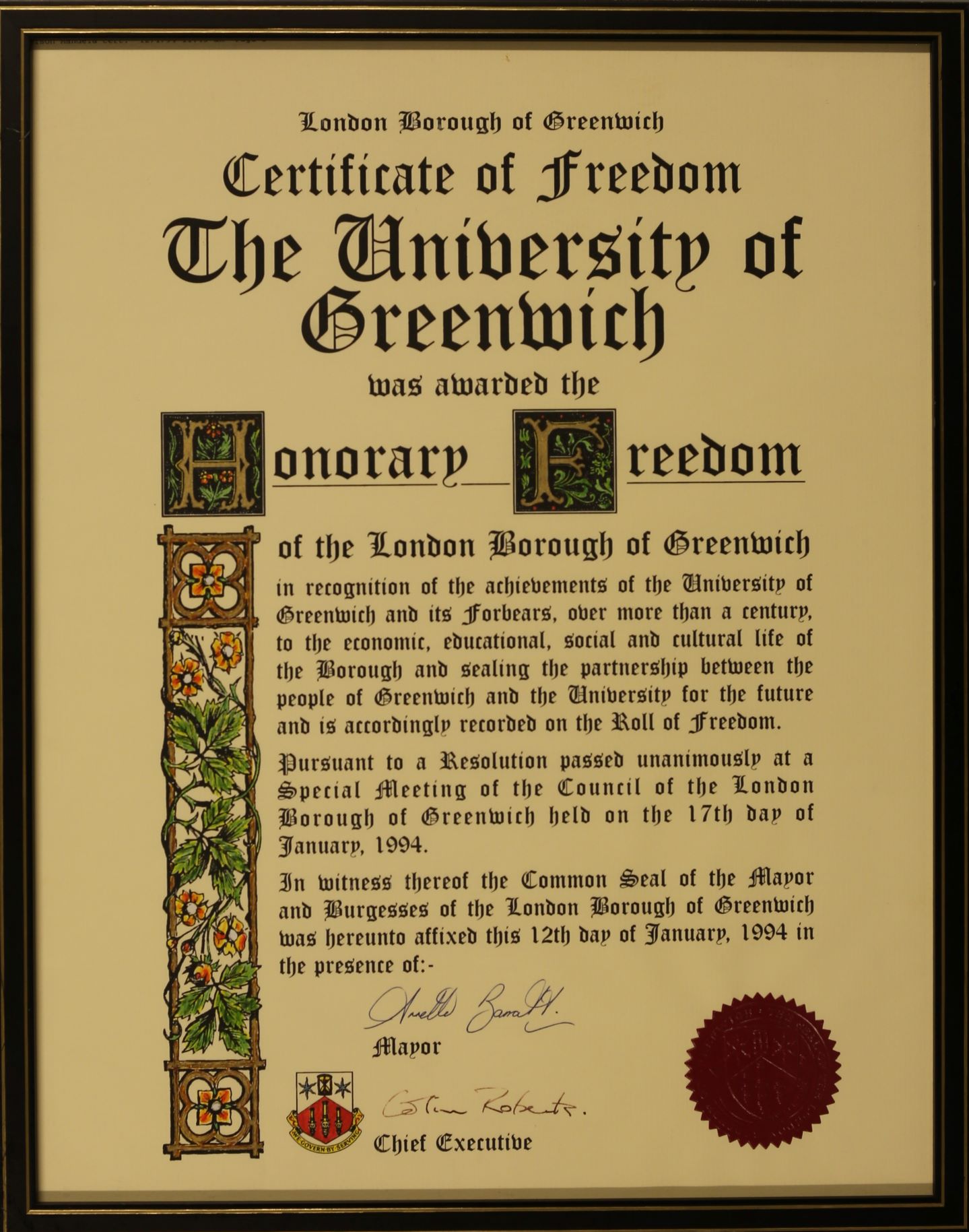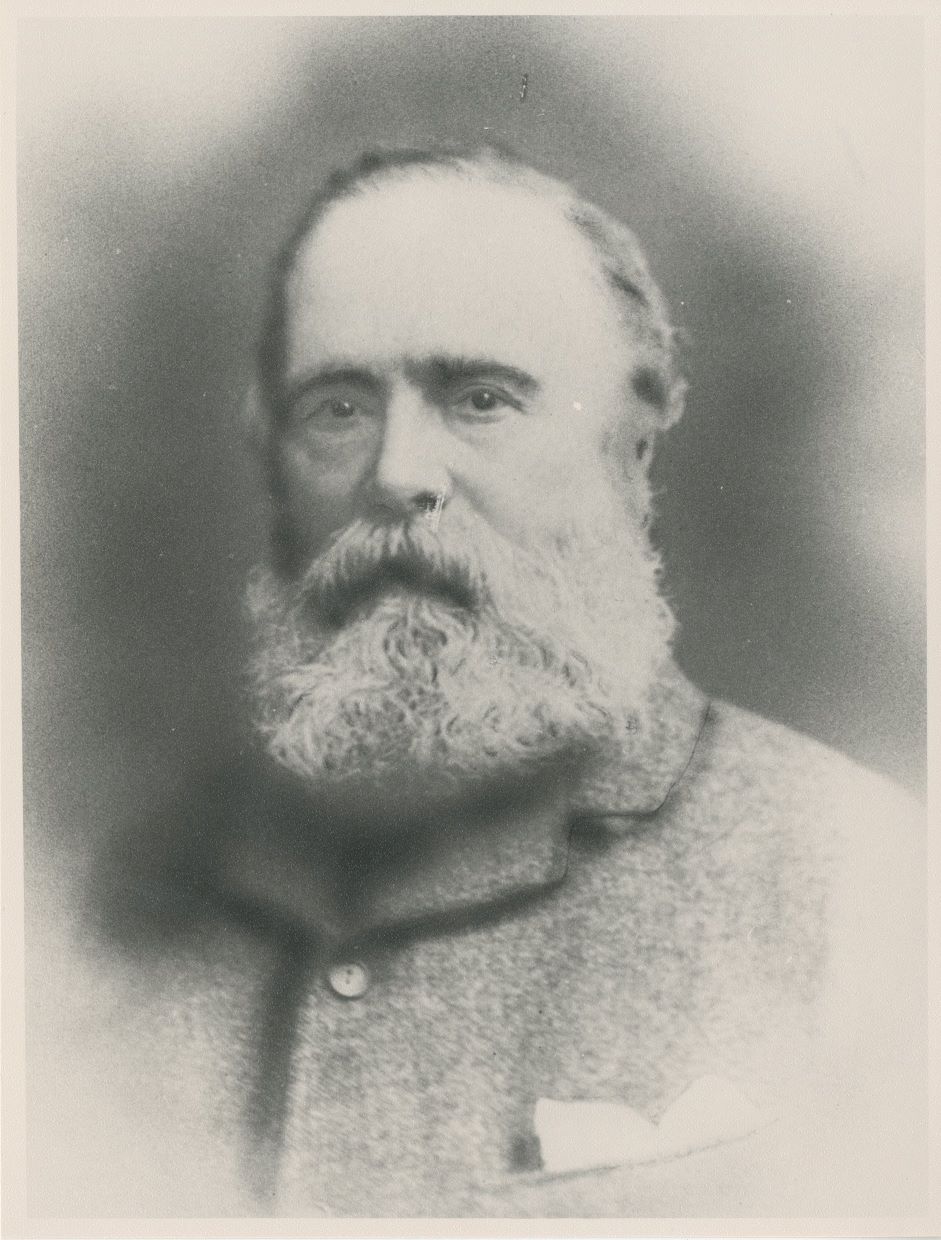
The Freedom of the Borough is awarded to people and organisations who have rendered eminent services to the Royal Borough. It is the highest award that they can give and is an honour bestowed on very few.
We became only the third institution to be granted this status in 1994, only 2 years after our status change to the University of Greenwich.
The award recognised our positive impact “over more than a century, to the economic, social and cultural life of the Borough”. It confirmed and secured our longstanding partnership with the now Royal Borough.
The award recognised the achievements of the university “and its forbears”. As an educational and social institution, we have had a presence in South London and Kent for over 130 years.
Our important contributions to the local economy and culture are ongoing. Our journey as an institution has always been intertwined with our local communities. This remains just as important and relevant for us today.
Woolwich Polytechnic, providing social and technical education
Our story begins in 1890 with Woolwich Polytechnic Young Men’s Christian Institute. Born out of the Polytechnic Movement this was an attempt to improve the lives of those living in poverty. The Polytechnic provided access to a level of education often unobtainable to people without wealth and opportunity. It also provided them with social and religious guidance.

The founders aimed to build on the work of Victorian Education reformer Quinten Hogg. Frank Didden and other wealthy merchants sought to provide technical, social and religious education. The Polytechnic delivered technical classes in an array of subjects. Plus social entertainment and welfare such as concerts, athletic pursuits, and religious ceremonies.
Another important figure in the Polytechnic’s early years was Thomas Anthony Denny, pictured here. Known as the “Pork Philanthropist”, Denny was heir to the Irish Denny Bacon empire. He served as a Governor to the Polytechnic from 1891 – 1894. He recognised the need for an institution to educate the impoverished population of Woolwich. Denny was instrumental in securing the Polytechnic’s first site. Our first student body was mostly comprised of men who worked at the Woolwich Arsenal.
Fostering good relationships within our community
![47 William Street Woolwich March 1st 1890 TA Denny Esq[ui]r[e] Dear Sir, I have thoroughly considered the matter of surrendering the lease of these premises and while I am making no inconsiderable sacrifice, knowing the purpose for which they are intended, I am prepared to accept the terms you named. I however wish to state that I was most anxious and intended to give 100/- to objects purely religious and philanthropic, and with this view I would ask that 100/- may be added to the proposed amount, with the understanding that if the said objects do not commend themselves to your good judgement I will return the amount I would not ask this but for the reasons I mentioned to you at our interview on Thursday I arn having an Inventory prepared and dated and it shall be forwarded to you shortly, and I would remark that while the ornamented glasses are left out, other articles are substituted more adapted for the purpose of an institution I shall be glad to hear from you, and if I can render any assistance in your dealing with the freeholds I am at your service I am dear sir yours truly, Sam Barnes [signature].](https://www.gre.ac.uk/__data/assets/image/0033/359574/wp-letter-transcript-resize.jpg)
Our focus on our local communities has been present from our earliest history. Evidence of the goodwill this generates is in this letter confirming the acquisition of our first property. The house belonged to Sam Barnes and cost £1000, over £100,000 in today's money.
Dated 1 March 1890, the letter relays that the property was sold at a reduced rate on the merits of the activities to be conducted there.
These activities included the education of local boys and women from impoverished backgrounds. Plus a series of events, clubs and lectures that became the Social Side of the Polytechnic. The items for “religious and philanthropic” use showcases the Polytechnic’s commitment to the development of the people of Woolwich on all fronts. This social commitment formed an equal partnership with the educational mission.
In the early years, Woolwich Polytechnic experienced growing tension between its goals of technical education and social enrichment. This was partly due to London County Council's increasing influence. Eventually, the focus shifted more towards higher technical education. However, the legacy of social and community enrichment lives on through various clubs and societies, which still exist today.
Freedom of the London Borough of Greenwich

Fast forward over 100 years from our founding, the awarding of the Freedom of the Borough marked over a century of development, education, and opportunities. Before 2011, the Royal Borough of Greenwich was known as the London Borough of Greenwich. From the award's inception in1966 to 2011, only 19 people and organisations received this award, which is the highest honour the Borough can bestow. Check out who else has been bestowed the award; the list includes Nelson Mandela.
The Official Document was received by then Vice Chancellor David Fussey on 17 January 1994, celebrating over a century of close ties between the university and the people of Greenwich.
The freedom was reaffirmed in March 2012 and now hangs proudly in the university archive alongside other important documents from our long history.
Today, the University of Greenwich remains committed to offering opportunities to all. The recent £1.2 million grant for Degree Level Apprenticeships in areas like Midwifery, Speech and Language Therapy, and Construction Site Management reflects our mission of Education Without Boundaries and our origins in higher technical education.
Find out more about our archive
The official Freedom of the Borough document and extensive records on our history can be found in the University of Greenwich Archive. Located in the basement of Stockwell Street Library, this state-of-the-art archive houses over two million records and items, including special collections from the local area. It is an excellent resource for students, staff, and the wider public to explore our diverse community, both past and present.
Is there something the archive can help you with? Contact our apprentice archivist Nathan or knock on the door of B007 in Stockwell Street Library.

